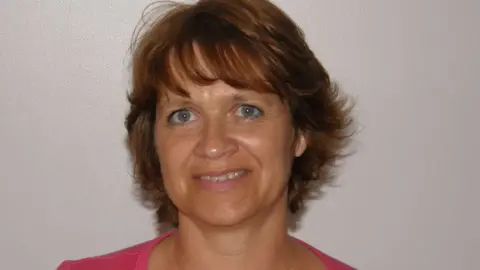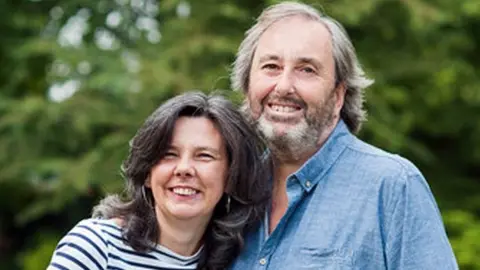Ian Stewart was 'unbothered' at funeral of wife Diane, court hears
 Contributed
ContributedA husband accused of murdering his wife appeared "totally unbothered" and "aloof" at her funeral, a court heard.
Ian Stewart, 61, is accused of killing Diane Stewart, 47, at their home in Bassingbourn, Cambridgeshire in 2010.
The cause of Mrs Stewart's death was recorded at the time as sudden unexplained death in epilepsy (SUDEP).
Police opened an investigation after Mr Stewart was jailed in 2017 for the murder of his partner, author Helen Bailey, in 2016.
Alexandra Bailey, who had studied with Mrs Stewart at Salford University in the 1980s, said her friend's death came as a "complete shock".
In a statement read to Huntingdon Crown Court by prosecutor Neil King, she said she recalled Mr Stewart's behaviour at the funeral as "a little odd."
"He seemed totally unbothered and seemed quite aloof," she said.
"I didn't know if he was behaving this way for the boys but I just didn't feel it was right."
 SWNS
SWNSThe trial also heard evidence from Home Office pathologist Dr Nat Cary, who said he would "expect to see injuries" on the outside of a body of someone falling on to concrete during a fit.
Prosecutor Stuart Trimmer QC told the court: "We know no such injuries were found on the body of Diane Stewart."
He then asked Dr Cary: "In terms of what may have killed her, do you have views?"
Dr Cary replied that SUDEP was a "contender" but added: "It's really a diagnosis of exclusion - and an equal diagnosis of exclusion is having been put into such a state by some covert means" including "smothering or interfering with the mechanics of breathing or some kind of drug use."
Mr Trimmer said that the "only kind of drug screen done after death was in relation to the anti-epileptic drug" taken by Mrs Stewart.
Dr Cary agreed that full toxicology was not done as part of the 2010 post-mortem examination.
Mr Trimmer said that, in the case of Ms Bailey, "consciousness had been reduced by administration of a drug" and that no injuries - or natural disease - had been discovered.
The pathologist said that "sometimes in fatal neck compression, signs are pretty subtle".
Dr Cary agreed with Amjad Malik QC, defending, that SUDEP was a "possible factor in the death of Diane Stewart" but added that "on the background of cases of SUDEP it becomes very unlikely".
The trial continues.

Find BBC News: East of England on Facebook, Instagram and Twitter. If you have a story suggestion email [email protected]
